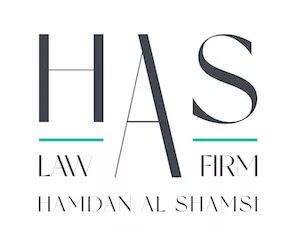Cheque cases, following amendments to the commercial law, have been limited to specific situations for an act to be considered a crime. The crime of issuing a Cheque without sufficient funds has been abolished (Articles 401, 402, and 403 of the UAE Penal Code). A distinction was made between the act of a Cheque bouncing due to insufficient funds, which is no longer a crime, and a Cheque bouncing due to the drawer withdrawing the amount, closing the account after issuing the Cheque, or deliberately signing it in a way that prevents it from being cashed. Criminal penalties still apply in these cases, with some modifications.
The new Article 641 (1 bis) stipulates imprisonment for no less than six months and no more than two years, and a fine of no less than 10% of the Cheque's value, with a minimum of AED 5,000 and no more than double the value of the Cheque, or one of these two penalties for anyone who commits the following acts:
- Ordering the bank not to cash the Cheque before the withdrawal date unless the Cheque is lost, or the holder is bankrupt.
- Closing the account or withdrawing all the funds before issuing the Cheque or before the cheque is presented for withdrawal, or if the account is frozen.
- Intentionally drafting or signing the Cheque in a manner that prevents it from being cashed.
Therefore, the legislator did not completely abolish the penalties. They now only apply to the drawer who acts in bad faith, such as withdrawing the Cheque's value after giving it to the beneficiary, closing the account, or deliberately drafting the Cheque in a way that prevents it from being cashed. Additionally, the financial penalty has been adjusted based on the Cheque's value, with a minimum fine of 10% of the Cheque's value and a maximum of double the Cheque's value.
Below, we discuss a case where a client was acquitted in a Cheque case.
Case: “Signing Cheques knowingly with a deliberately closed account.”
The client signed three guarantee Cheques on behalf of his company, although he was not the company's manager. All the Cheques bounced due to the closure of the bank account. The public prosecutor referred the case to the relevant court to prosecute the client under Article (675/1-B) of Federal Decree-Law No. 50 of 2022 on the Issuance of the Commercial Transactions Law.
Our team received the case file, thoroughly researched it, and found that the bank account was not closed by the client's decision but was temporarily closed (for less than two months) due to an internal bank procedure related to company debts owed to the bank.
As a result, the client was advised and made aware of the situation, and provided with the defense strategy, and accompanying documents. The client was tasked with contacting the bank to obtain written evidence showing that the account was closed by the bank. This was to anticipate any refusal by the court to communicate with the bank and to close any defensive loopholes that could harm the client.
A defense memorandum was submitted to the court of first instance, arguing that the Cheques in question were Guarantee Cheques only, and the client had no authority over the bank account since he was not the company's manager and had no control over its bank accounts. This constituted an impossibility and a force majeure that prevented him from monitoring the financial activity of the company's accounts, controlling whether they were opened or closed, or even being aware of any such events.
The defense also included a bank statement for the company's account, which showed that only one Cheque had bounced due to the account closure, while the other two Cheques did not, and other Cheques had been successfully cashed during the same period.
Moreover, the strategy of obtaining documents directly from the bank, instead of waiting for the court to contact the bank, was successful. We obtained letters from the bank proving that the reason the Cheques bounced was strictly due to internal administrative procedures and that the account remained active to date. The bank had simply suspended the Cheques due to outstanding debts owed by the company.
We requested the court of first instance to communicate with the bank to verify the above, but the court fined the client AED 300,000.
An appeal was filed, and we requested the Appeal Court to contact the bank, but the request was denied. The Appeal Court reduced the fine to AED 100,000.
Consequently, we filed for cassation, citing a violation of the right to defense and the court's disregard of the evidence presented by rejecting a critical defense request to verify the account's status. The cassation court accepted the appeal and referred the case back to the Appeal Court to investigate the essential defenses we presented.
The case is still ongoing...
The content of this article is intended to provide a general guide to the subject matter. Specialist advice should be sought about your specific circumstances.


